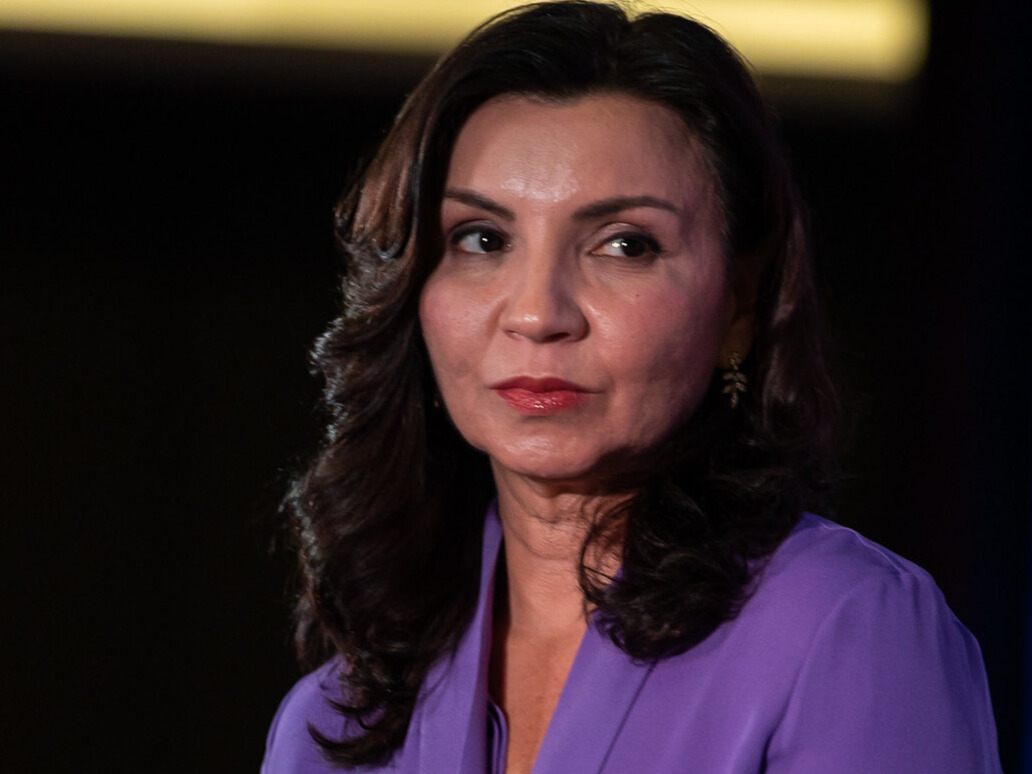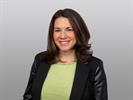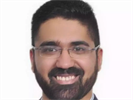Arun Sudhaman 30 Jun 2023 // 5:28PM GMT

CANNES — It has been four years since former DuPont CCO AnnaMaria DeSalva was hired to lead Hill+Knowlton Strategies. In that time, the firm has restored momentum in the US and Asia-Pacific and continued its market-leading progress in EMEA.
There have also been two agency acquisitions, something of a rarity in today's holding group PR landscape, and H+K has also installed a largely new C-suite to support its CEO. DeSalva sat down with PRovoke Media in Cannes to discuss the challenges she has faced during her time in charge, and where H+K goes next.
The following transcript has been edited for length and clarity.
How would you compare H+K Strategies today with four years ago?
Four years ago, I was here at Cannes because [WPP CEO] Mark Read asked me to come. My overwhelming thought was, I have so much to do in this role, but I have so much to work with. H+K has been, for the ages, an important and high quality company. It needed renewal, and invigoration and foresight. Flash forward a couple of months. I sat down with Paul [Holmes], at PRovokeGlobal — the reflection I had for him then, fresh from the client side and from a dozen years in challenging senior roles, what was really on my mind was the criticality of communication and business transformation.
I had worked on such amazing transformations at Pfizer and Dupont, where communications was a driver. What was really on my mind was how CEOs were responsible for sustainable value creation and they needed their CCO to be a principal in that transformation. That’s where I saw the opportunity, to really bring H+K into a proposition focused on value creation. And then the question becomes, how to be a leading company for clients that have to have commercial growth, manage their risks and protect their corporate reputation.
Growth, risk, reputation. Those imperatives fuse. Clients are navigating unbelievable complexity. So for me, that meant, having a look at H+K and understanding truly where we are strong, where we have gaps and where we have opportunity. We wanted to continue with the multiyear creativity and strategy investment. Given the role that government now plays in business, ensuring we have a global public affairs muscle in terms of capability.
Committing to being in all three of those areas [creativity, risk management, reputation] and underpinning it with intelligence and technology. Also a strong talent and people capability. It became obvious where we needed to invest. When you look at the company now, you see the commitment in those areas, in terms of the people we have elevated and hired from outside.
If you look at the senior leaders we added, it tells quite a story. Global chair of corporate affairs, global chair of public affairs, global CSO, global chief people officer. First global CMCO. Global CTO. Global chief of staff. These roles didn’t exist.
It looked like the people and culture side needed some attention at H+K.
It did. We wanted to elevate the function. As a chief corporate affairs officer, you have such a strong partnership with the chief people officer, and I had spent so much time as a client in the HR space. It was incredibly important to me to have, in a talent business, a strong function. Now Azurée Montoute-Lewis is our global chief people officer, she brings a tremendous background. I think she’s doing a great job on our systems, our philosophy, on building a real global DE&I strategy. She’s adding some people to the team — a new head of global DE&I and a new head of talent management. They are both diverse hires. It’s my goal to have an industry leading people function. I think we have a real shot at that.
You've acquired two agencies in Jeffrey Group and 3K, which is uncommon among holding group PR units. How do you get WPP to back this level of investment?
It does go back to all of us to see and understand the validity of the growth strategy. This where we're pointing the company, and this is how we have to develop the company both organically and inorganically. I think WPP itself has transformed and has a clear and focused growth strategy and they believe in the sector, and they know it plays a strategic role overall in our business. It's just been a steady rational discussion with them all along. As always, it helps when you perform. One of the ways we are different is our growth. Over a two-year period we grew 25% in net sales globally, and very consistently. It’s a slower growth environment right now and we have to metabolize some of that growth, so I don't want to set an expectation that we're going to necessarily maintain that same pace of growth.
We set the growth strategy in 2019 and then Covid happened and it validated the growth strategy. Then the war in Ukraine happened, there was geopolitical disruption, a changing world order, pressure on clients to reset their supply chains and technological disruption. All that has happened in a few short years. I believe we have the right strategy and its been reinforced that, if anything, we have to move faster now.
After a year, global president Lars Erik Grønntun leaves. Did that create any concerns within the firm?
It’s always significant within the firm when a senior leader leaves. But you have to embrace the opportunity to respond to that challenge, to reassure everyone, to look at the implications of the departure, and to proactively solve what it might represent. We took a very practical approach. We had a mild management redesign. I’m pleased that’s still our design. Management design restructures should reflect the growth strategy. Keeping it constant is not the goal. I felt like we needed that continuity within the firm. I feel like it has been very beneficial. But soon, it’s going to be time to contemporize.
Do you have plans to change the geographic structure?
The essential question is, how do we evolve our design in terms of where we are going? There’s nothing to tell you yet as it’s not determined yet. It’s on my mind. It won’t be a revolution, it will be a smart evolution.
How happy are you with H+K's North American progress?
You can imagine how important it was to me to reset North America, but particularly the US. The US had languished for almost a decade. I felt at the time that it was important for someone very trustworthy, understood the organisation and could bring them into the next era of achievement and growth. I asked Richard Millar to come from the UK to the US. He’d successfully led our UK business for a decade. He certainly knows our business deeply in all the tangible and intangible ways. He was the right leader for the right time to restore confidence in the US business.
Was there ever a concern that he wasn't an American or someone who's worked in America?
You’re right to raise that topic and it was raised with me at the time. Richard and I actively talked about it. What we always said was it was going to be a finite assignment, it wasn’t going to be indefinite. Right leader at the right time. We basically said, let’s plan to do this for up to three years and see where we get to. We’ve returned the US to growth.
H+K has had numerous strategies to restore growth in the US over the past 15 years. What was actually required?
Someone that understood H+K well. But, equally, someone that could reset the strategy and understood what the management team needed. And also, frankly, set some expectations, and could invigorate the culture and make it performance driven and performance oriented. When a business is languishing like ours was for as much as a decade, you lose perspective. And you need the perspective that we can win, we need to win and we have everything we need to win. I see esprit de corps in the US business, I see creativity, energy, passion for the work, connection and collegiality. I see much more confidence than we had three years ago. I think there’s more to do. We're never done.
What was the biggest challenge you have faced?
H+K is not a boutique specialist company. Doing some soul searching and thinking around what’s our role going forward, I talked to a lot of clients. I interviewed several senior clients about their perceptions about the industry and us. That made clear to me, our clients current and future, really wanted us to be on the bridge of the Enterprise with them looking broadly across growth, risk and reputation. We have also the global network and strength in technology and healthcare. So, shrinking the scope of the business was not compelling. Thinking about the transformation agenda, that’s a big scope. We can’t shrink from the mandate to strengthen all those areas of the business.
How do you feel about progress in Asia-Pacific?
[Asia president] HS Chung has done a great job. There’s more she will do. We have a great business in Korea. HS has put together an Asian leadership council. We decided to invest. We launched in Indonesia. HS’ advocacy with respect to the importance of the region and the role it will play with respect to commerce and culture has been very helpful. We have to be strong in Asia, and Asia’s been a very consistent performer for us now. Quarter after quarter they are putting points on the board.
What's your forecast for 2023 and 2024?
Clients are under economic pressure, they are dealing with myriad risks. The challenge of inflation. Many of them are resetting their supply chains at greater cost. Clients have margin pressure so that inevitably impacts their purchasing behaviour. We have to be realistic about that. But equally, in PR and comms, we’re very active in highly material issues and parts of the business that tend to be more resilient and resistant to economic downturns. We can’t lose sight that we have an opportunity to grow the business. It’s the alchemy of innovation and growth and pointing the business to the growing parts of the market and the higher value parts of the market, while also running the business very efficiently.
How do you see the China market currently, given the challenges that international businesses have faced there?
We have a good business in China. Many of our clients, Western MNCs, are in China and are addressing the questions you have raised but they are in the market. We have to find a way to continue to work with our clients in such an important economy and to really reflect the incredible economic interdependency that China has with the West and vice versa, but with good judgement around risk. For years now, we’ve been strenghtening the apparatus we have in the company to evaluate risk. That gives me comfort that we have the right headspace to manage political risks.
How do you view the industry's progress on DEI?
It is critically important because we can’t serve our clients well without more diversity in the industry. I see it as a highly material, and highly commercial imperative — that’s the urgency with which we’re approaching it. Progress is slow, and it’s too slow and we really have to face down why that is and what are the intractable challenges in terms of diversifying the industry. We’re very candid, we’re addressing those questions internally and adding the people who can help us accelerate. At H+K, we have made epic changes over the last couple of years. We have many, many more programmes. We have a 50-person strong global DE&I council, many partnerships with external organizations, we’ve formed ERGs, and we have partnerships with McKinsey and Cornell on DE&I leadership programs.
Our inclusivity scores have drastically improved. We’re now a top performer (WPP wide) for inclusivity. We have leading indicators of progress, but some of the lagging indicators are most important and we haven't broken through to that level of performance yet. When I review our activity and performance and I get that qualitative feedback from our people, I’m encouraged that we’re really serious about this.
You spent more than a decade in-house before returning to H+K. Do you miss the client side?
I love both sides of the business. Honestly, what was the most exciting for me, was the opportunity to lead a business I’m so passionate about, and to bring everything I’ve learned as a client into this business. I realize that what I really wanted to do was run a business, but I hadn't done that in the way I wanted to. It was serendipity that WPP reached out to me. On my worst day, I’m grateful and happy to be in this role. It’s really meaningful to lead the company now.


































.jpg)































